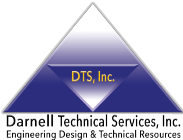Working as an independent contractor can come with many benefits, such as being able to choose the projects we work on, the clients we network with, and the rates we set for our work. However, all of this comes with many responsibilities, including paying more attention to our income tax return. Whether we decide to do this part of the job ourselves or hire a tax professional to guide us through each part of the process, we must make sure we stay on top of our tax obligations. That’s why we have gathered these four useful tax tips for independent contractors to keep in mind.
Always Remember to Report All Your Income
To begin with, we must remember that we always should report all of our income, including that from each job and project we got during the year, regardless of the amount of what we got paid. Whenever we work on a job that included a payment of more than $600, we will get a 1099-MISC Form. This should happen with most of our projects. However, if we did a job with a payment of $599.99 or less, we won’t see this form. No matter how tempted we are, we should include this part of our income when we file our tax returns.
Pay Your Estimated Taxes and Include SE Taxes, Too
When we work as independent contractors, we need to remember that we are responsible for paying our income tax on the earnings we made as estimated taxes. Unlike our income tax return, our estimated taxes are due four times a month. The due dates we need to pay attention to are April 15, June 15, September 15, and January 15. Whenever we pay our estimated taxes, we need to add our SE (self-employed) taxes, too. Otherwise, we will be subject to different interests and penalties when we cover our final tax return.
Keep All Your Receipts Stored and Registered
Every taxpayer should be aware of the importance that keeping all your receipts stored and registered represents when filing their income tax return. This is particularly true for independent contractors since much of what qualifies as a business expense can be deductible. In order to get a lower tax bill, storing our receipts is essential. This way, we will be able to list and justify the expenses we made for a particular job, allowing us to request a deduction to the IRS.
Determine Which Schedule You Should File
The last thing we need to check when working as independent contractors is determining which schedule we will use to file our taxes. Many contractors decide to file Schedule C, adding it to their annual Form 1040 tax return. However, filing under Schedule C-EZ might be more convenient for some contractors, especially when:
- they had business expenses for less than $5,000
- used the cash method of accounting
- didn’t have an inventory during the tax year
- didn’t hire an employee
- didn’t claim home office business expenses, or
- didn’t carry over any passive activity losses from the previous year.








